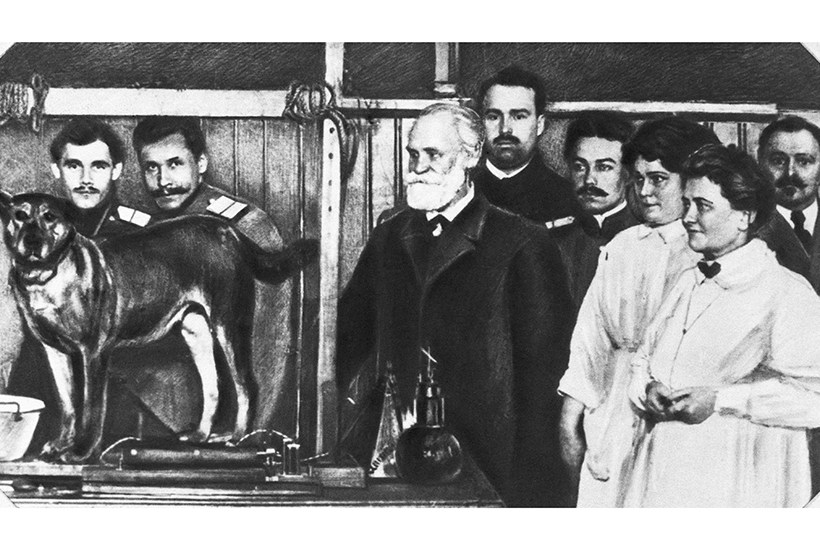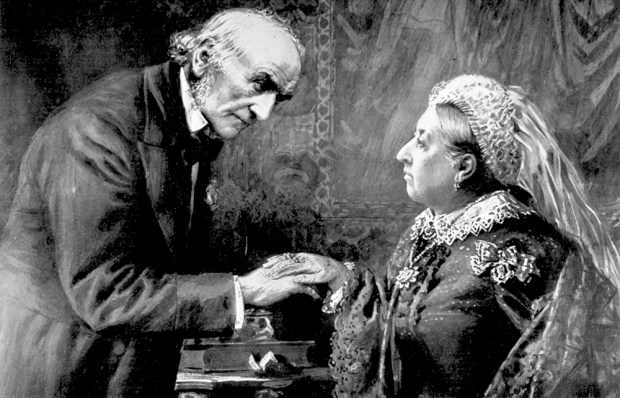When two post-Soviet supermodels committed suicide in the noughties, both throwing themselves off high buildings in New York and Kiev, the trail into what made them so depressed led to a ‘personality development’ organisation in Moscow that offered ‘trainings’ that would help ‘find your truer self’.
The moment you entered the dark Stalinist gothic theatre, filled with dozens of other ‘students’, you were under the control of the ‘life coach’. Drawing confusing pictures on a whiteboard, he would talk quickly and loudly about ‘transformation’. Then came days of non-stop psychiatric-style exercises. People went on stage and were instructed to recite their most traumatic past experiences. Some talked about rape, others about bullying. The life coach would turn on them and scream that this was all their fault; they had allowed all this to happen and now he would make them strong. Humiliation was followed by elation, confession by group ecstasy, weeping by wild laughter. It seemed to the attendees that they felt real emotion for the first time, could be themselves, and that the outside world, their families and professional lives were all fake. From early morning to late evening you were forbidden to leave the hall, even to go to the toilet.
After a week you were told to sign up for the next, more expensive course. Everyone complied. Even journalists who had gone in to investigate the organisation crumbled. When agents of the life coach called them, which they did constantly, and told them to enrol for future courses or else miss out on their ‘transformation’, they reacted like Pavlov’s dogs to words that had been incessantly repeated at the ‘trainings’. Those words set off the memory of super-intense emotions and tough investigative reporters turned to putty on the phone.
The ‘courses’ ultimately operated much like a pyramid scheme: if you wanted to stay, you had to bring in more people. If you failed, you were excluded. For some that was traumatic. Psychological side effects and even suicide were dismissed with a shrug by the life coach: such people, including the super-models, had failed to ‘transform’. It was the first time I’d seen how easy it is to break a person; to put anyone under someone else’s control.
Joel E. Dimsdale, professor of psychiatry at the University of California, also starts Dark Persuasion, his history of ‘brainwashing’, in Russia — with Pavlov’s experiments to control the behaviour of canines in the early 20th century. Pavlov was no communist (he even refused to sing the Internationale in public), but Lenin and then Stalin helped him flourish because he promised to help forge Soviet Man: ‘Do you mean,’ Pavlov asked Lenin when he visited his laboratory in October 1919, ‘that you would like to standardise the population of Russia? Make them all behave in the same way?’ ‘Exactly,’ answered Lenin.
Pavlov had shown that when dogs were put under stress and given contradictory commands their behaviour deteriorated into ‘transmarginal collapse’: friendly dogs became aggressive and vice versa; they changed their attitudes to people. Now Lenin gave Pavlov human patients to experiment on.
The results of the research, Dimsdale argues, were in evidence at the Moscow show trials in the late 1930s, when dozens of innocent, often leading Bolsheviks publicly ‘confessed’ to absurd charges of treason. Western journalists and diplomats who watched were struck by how the defendants appeared genuinely to believe themselves guilty — to the point where it seemed they must have been to blame after all. Behind the scenes, interrogators were drawing on Pavlov’s research into ‘traumatic disintegration’, using a mix of sleep deprivation, violence and contradictory instructions to discombobulate victims to the point where they no longer trusted their own judgment.
Pavlov’s research was invoked again when Americans tried to make sense of how US soldiers captured in the Korean war would go on television to ‘confess’ how they had been converted to the cause of communism, and to ‘confirm’ false stories about American use of germ warfare in the conflict. Some POWs even opted to stay behind and not return to America at all.
‘Brainwashing,’ wrote Edward Hunter, a second world war propaganda specialist turned Cold War journalist, ‘is the terrifying new strategy to conquer the free world by destroying its mind.’ Hunter had taken the Chinese term xi mao, which refers to changing the heart through meditation, and recreated it as creepy ‘brainwashing’. He interviewed former US prisoners and concluded the Chinese interrogators had perfected Pavlov’s techniques to turn a person into ‘a living puppet — a human robot’.
Scientists were less impressed with Hunter’s rhetoric. People would be foolish, one critic noted, to regard ‘conversion to communism as the demonic machinations of Doctors Pavlov and Fu Manchu’. But the Chinese interrogators were ‘Pavlovian’ in the sense that they were rigorously methodical, relying on what one analyst defines as ‘DDD’: debility, dependency and dread. They isolated prisoners, set them against each other, forbade personal hygiene, half-starved them, threatened them and made them dependent on small favours granted by their captors.
Not to be outdone, the CIA created its own ‘Manhattan Project for the Mind’, pioneered by a former student of Pavlov’s, Howard Wolff, an expert in curing migraines. Part of the programme set about experimenting with everything from hypnosis to LSD in order to make people pliable. Some of the experiments under the MKUltra programme were stunningly unethical: plying unsuspecting subjects with hallucinogens, including spiking drinks at academic conferences, which led to at least one high-profile scholar falling (or jumping or being pushed) out of a window to his death.
Some research included personal interests too. When the wife of Allen Dulles, the director of the CIA, was inconsolable due to her husband’s hundreds of extra-marital affairs, the agency suggested she meet Professor Ewan Cameron, one of their grantees, to see if he might help with her unhappiness. Cameron specialised in electro-convulsive therapy. He believed that if used in large amounts it could wipe out bad memories, and even advocated that all Germans over the age of 12 be ‘de-Nazified’ with ECT. Mrs Dulles turned down the offer, but her husband sponsored Cameron’s research into whether ECT could be used to break the will of foreign agents.
When not working with the CIA, Cameron was the president of the American Psychiatric Organisation, and ECT had positive contributions in helping patients who didn’t react well to anti-depressants. If there’s one through line in Dimsdale’s compendium of case studies it’s how close ‘brainwashing’ and ‘dark persuasion’ are to therapy and positive contributions in scientific research. That was also the case with the ‘personality development’ courses I’d investigated in Moscow. They had originally been based on an interesting innovation in psychoanalysis, Gestalt Therapy, which had then been commercialised and exploited by cynical ‘life coaches’ in California and exported as a business across the world.
It’s this intertwining of good and evil that makes the field so difficult to define. When a task force was created in 1983 by the American Psychological Association to study ‘Deceptive and Indirect Techniques of Persuasion and Control’, it recommended ‘stricter regulations… regarding the systematic application of deceptive techniques of persuasion and control’. But the association rejected its findings, worried that the term ‘cult’ could be used loosely to stifle new movements, while ‘the term “brainwashing”… is just a sensationalist explanation… that should not be used by psychologists’. The APA was also vague about ethical guidelines for psychologists’ research in government interrogation projects.
One walks away from Dimsdale’s book a little worried about whether kind-seeming behavioural scientists, psychiatrists, neurologists and doctors just see us as a pack of Pavlov’s dogs.
Got something to add? Join the discussion and comment below.
Get 10 issues for just $10
Subscribe to The Spectator Australia today for the next 10 magazine issues, plus full online access, for just $10.
You might disagree with half of it, but you’ll enjoy reading all of it. Try your first month for free, then just $2 a week for the remainder of your first year.














Comments
Don't miss out
Join the conversation with other Spectator Australia readers. Subscribe to leave a comment.
SUBSCRIBEAlready a subscriber? Log in